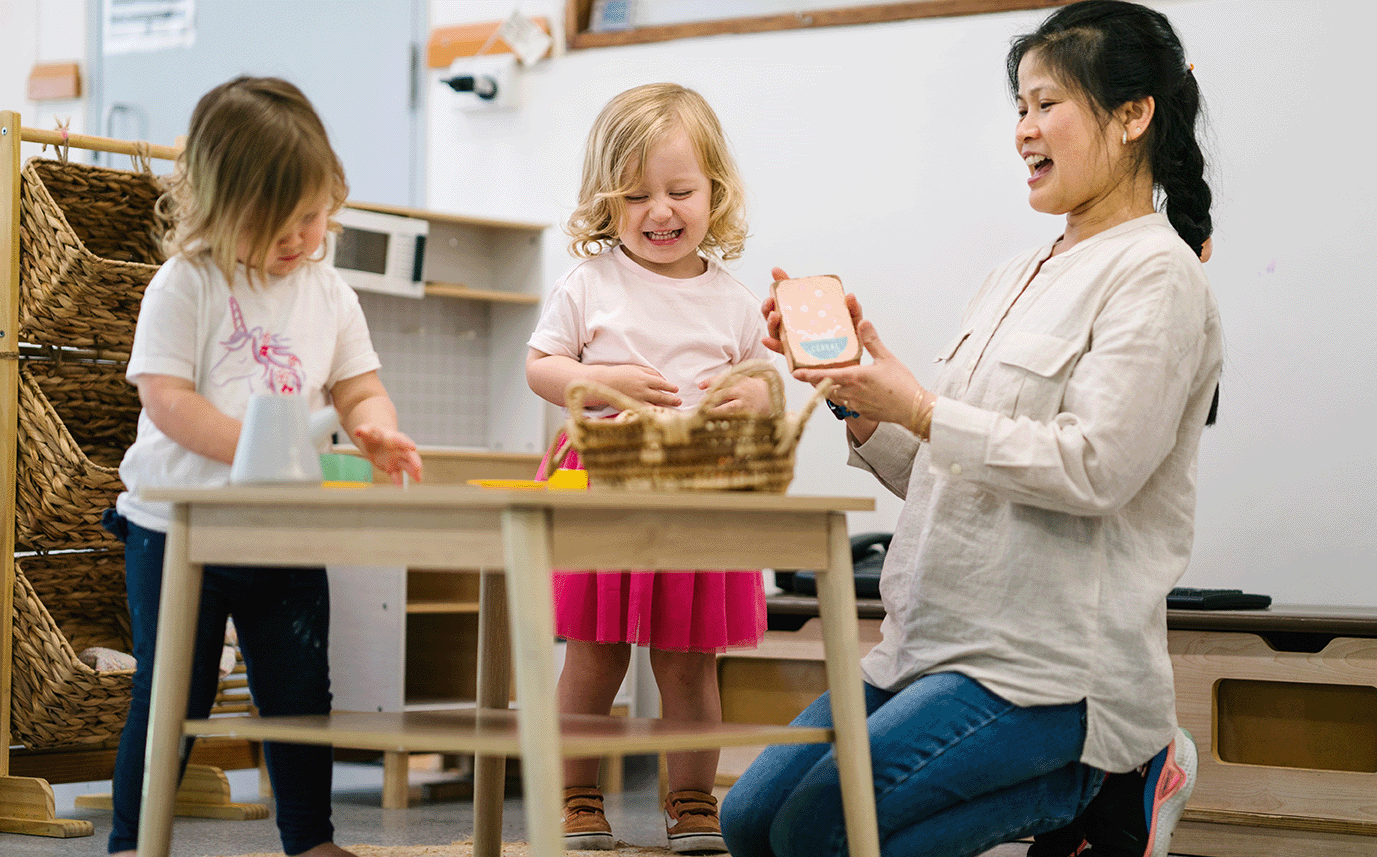
You can find quality early childhood education for children under school age in long day care and family day care services.
To find the right quality early learning service for your child, consider the service quality rating and visiting the service at least once. Seeing what happens there can help you consider how the service's practices will meet your needs.
Why does quality matter?
Your child’s brain rapidly develops in their first 5 years and research shows that children learn and develop at a faster rate during these years than any other time in their lives.
Research also tells us that quality early learning services provide support and encouragement for the ongoing development of your child’s language, cognitive, motor and social emotional skills.
You and your family are the most important influence on your child, and when they attend a quality early learning service, the experiences and relationships that happen there are also important.
Some of the most important characteristics of a quality early learning service revolve around:
Relationships and interactions
National Quality Standards (NQS) Quality Area 5 aims to promote relationships with children that are responsive, respectful and promote children’s sense of security and belonging. Relationships of this kind free children to explore the environment and engage in play and learning.
Quality early learning services place great importance on meaningful relationships between your child and their educators. This helps your child’s social and emotional skills development and their general wellbeing.
Your child's educators work in partnership with you and your family to get to know your child. They will speak regularly with you about your child’s needs, routines and experiences. At the service:
- educators talk with children during care routines, such as meal times
- educators are familiar to your child and family
- many playful social interactions take place, including conversations, songs, rhymes, and sharing books
- your child's rapidly changing behaviour is respected and their educators take time to show them how to play with others
- your child is supported sensitively while they are still developing self control skills
Social and emotional development
When your child is starting to interact and play with other children, their educators will provide support and reassurance:
- your child's educators will respond to their increasing ability to use language
- your child's educators will support development of their self-esteem and confidence
- your child's educators will offer them planned and spontaneous experiences to support their curiosity to find out, explore and investigate
- your child's educators will respond to their emerging humour and laugh and play with them for extended periods of time
- your child's educators will give them opportunities to make decisions on things that affect them, for example, when they eat lunch or when they sleep and rest.
Programs for children
Quality practice happens when educators make flexible plans and prepare for your child's positive experiences using the knowledge they have about their interests and abilities:
- your child's educators have structured and informal ways of evaluating and improving your child’s programs
- your child's educators are continually thinking about how good the experiences and activities are for your child and family and how to make them better.
The environment
National Quality Standards (NQS) Quality Area 3 aims to ensure that the physical environment is safe, suitable and provides a rich and diverse range of experiences that promote your child’s learning and development.
The way the environment is designed, equipped and organised determines the way that the space and resources are used. This has the potential to maximise your child’s engagement, positive experiences and inclusive relationships.
The early learning environment should be rich with language and print, and your child's educators should talk about what is happening:
- the environment is rich and stimulating, and the daily routines are predictable
- the noise and activity levels are pleasant and comfortable, and there are quiet moments to rest
- natural and synthetic materials support play and learning.
Health and safety
National Quality Standards (NQS) Quality Area 2 aims to safeguard and promote children’s health and safety, minimise risks and protect children from harm, injury and infection.
Maintaining children’s health and keeping them safe is the most fundamental responsibility of a quality early learning service.
Children in service settings are more likely to come into contact with contagious illnesses than they are at home. Services have clear procedures good hygiene practices and excluding ill children if required. They also ensure that families are provided with their current policies on health, nutrition and illness.
Your child's service will:
- implement the recommended sun safety practices
- supervise children effectively
- promote children’s nutritional health
- provide safe indoor and outdoor areas where your child can safely practice their developing physical skills such as climbing, balancing, running and jumping
- share information with families about children’s health and wellbeing throughout the day.
Choosing a service
Some questions that you may find helpful when considering early learning for your child include:
- How will the educators comfort my child if they become upset, or have difficulty separating from me when they start?
- How will I be informed about my child’s eating, sleeping and toileting during the day?
- How will my child be supported when they are toilet training?
Which educator/s will be my child’s main carer/s? - Will my child be able to follow the same routine they have at home?
- How will the educators guide my child’s behaviour?
- What will the program look like for my child?
- How can I share information about my child with his or her educator?